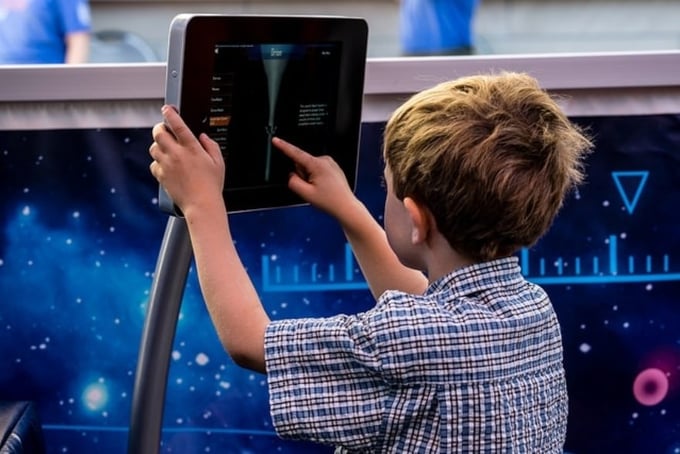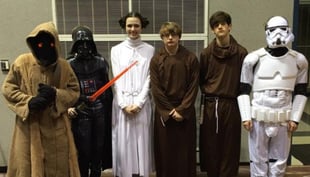Jennifer Mandel is director of STEM programs for Lockheed Martin Corporation.
Neil Armstrong traveled roughly 240,000 miles from Earth in order to walk on the moon in 1969. Multiply that figure 204 times, and that’s how many miles it takes to get to Mars. The Red Planet is roughly 49 million miles away from Earth and, while it might seem impossible to get to, NASA is working on a first mission to Mars by the 2030s.
That means the first crew to Mars could be sitting in middle school right now. So wouldn’t it be great if one of your students was part of that mission? Here’s how you can get students interested in deep space exploration: On Oct. 4, Project Lead The Way classrooms are invited to go behind the scenes of the Lockheed Martin Space Operations Simulation Center.
This LIVE virtual field trip is designed to introduce students to science, technology, engineering, and math (STEM) careers in deep space exploration and help them to gain a deeper understanding of how space flight leads to innovation on Earth. Students will have the opportunity to virtually meet Lockheed Martin experts and ask questions as they explain their career paths and experiences exploring deep space.
Advance classroom signup for the Virtual Field Trip is available at generationbeyondinschool.com.
Students will get a close-up look at:
- Mission Support: This is where flying missions are operated. Meet the engineer who monitors the temperature for the missions including Juno, which is orbiting Jupiter.
- 3D Printing Lab: This is a massive 3D printer that uses metal. Here, the propulsion team works with welding engineers to test and understand the equipment before its journey to space.
- CHIL (Collaborative Human Immersion Lab): Learn how virtual reality simulations are used in design and testing for human space flight.
- Orion Test Lab: Get exclusive access to a space crew module and the Test Lab where engineers configured it with the exact harnessing, electrical power, sensors, avionics, and flight software needed to test the capabilities needed to enable the journey to Mars. Meet some of the engineers who will simulate and test every aspect of the space mission.
- Habitat Module: The program manager will walk participants through the full-size mockup of a habitation module design that could be used to house the astronauts on the first trip to Mars.
- Space Operation Simulation Center: The center features a 50' x 50' asteroid wall and models of common spacecraft such as communications satellites and the Mars habitation module. We meet two of the lead engineers and designers to learn about the center.
- Asteroid Wall: A mechanical design engineer will show us how the receptacle she designed will be used to collect asteroid dust to be returned to Earth for study.
This Virtual Field Trip is open to students of all ages and is best-suited for students in middle school and above. The experience is part of Generation Beyond, a first-of-its-kind national educational program designed to inspire the next generation of innovators, explorers, inventors, and pioneers to pursue careers in STEM.
The program offers several interactive tools to engage and inspire students and educators:
- Online Curriculum: Teachers can download a deep space curriculum for middle school students, including lesson plans and activities students can bring home to share with their families.
- Student Video Challenge: Students will create a short one- to two-minute video explaining how they would design the habitation module for the first crew to Mars. Students can enter individually or in a group of up to four members from now until Dec. 15, 2016. A grand prize winning team or individual winner will win a $10,000 cash prize. Second place will receive $5,000; third place will receive $2,500. Participants can enter here.
- Hello Mars App: The Hello Mars smartphone app allows students to find Mars in the sky, travel there virtually, and receive real-time Mars weather reports.
Don’t miss out on this exciting virtual field trip opportunity. Also check out the curriculum and other offerings at lockheedmartin.com/generationbeyond.


